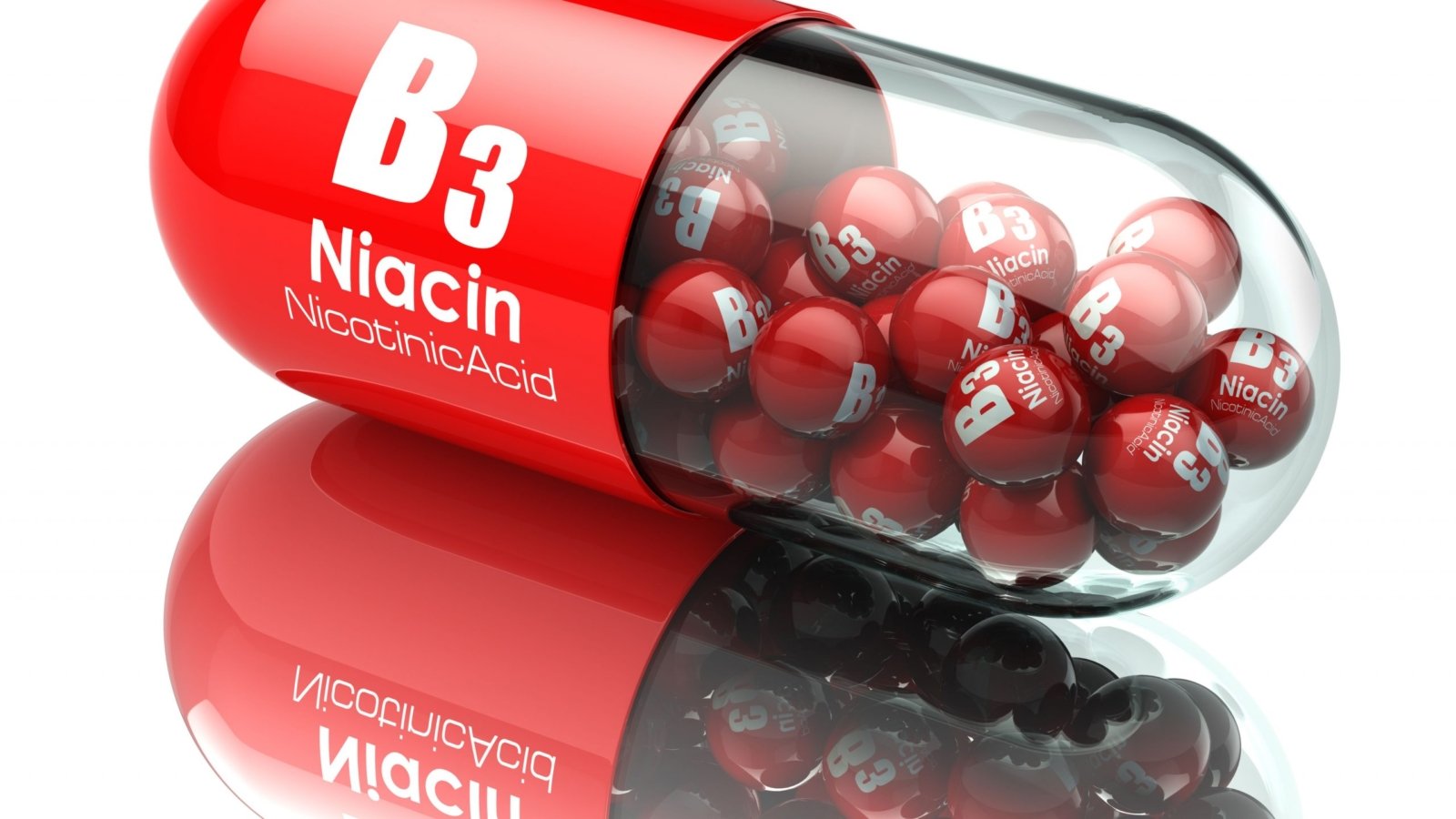Vitamin B3, also known as niacin, is an essential nutrient that is found in many foods. It is a water-soluble vitamin, meaning that it dissolves in water and is not stored in the body.
Vitamin B3 plays an important role in many bodily functions, including energy production, hormone regulation and cell growth. It has also been linked to a number of health benefits, including reducing cholesterol levels and maintaining healthy skin.
It can also act as a powerful antioxidant that may help lower oxidative stress.
The best sources of vitamin B3 include dairy products, meat, fish, nuts, legumes, fortified cereals and whole grains.
Supplements are also available for those who cannot get enough vitamin B3 from their diet.
A deficiency in Vitamin B3 can lead to diseases such as pellagra, so it’s important to make sure you’re getting enough in your diet.
Recommended Dietary Allowance (RDA)
The recommended daily allowance (RDA) of vitamin B3 for adults aged 19 years and older:
Niacin is measured in milligrams (mg) of niacin equivalents (NE).
Health Benefits of Vitamin B3
Vitamin B3 helps with many processes, including energy production and digestion. It also has a number of health benefits, including the following:
Improves cardiovascular health: It helps to reduce levels of bad cholesterol and triglycerides, which can help prevent heart disease and stroke.
Improved brain health: It helps to improve cognitive function and reduce the risk of Alzheimer’s disease.
Regulates blood sugar levels: It can help manage type 1 diabetes.
Boosts energy levels: It helps to convert food into energy, so it can help boost energy levels and improve mental focus and alertness.
Improved digestion: It is shown to improve digestion and reduce symptoms of digestive disorders such as flatulence and constipation.
Supports skin health: It is important for skin health, as it helps to protect the skin from damage caused by UV rays, aging and other environmental factors. Niacinamide, an another form of vitamin B3, may come in handy for treating some skin conditions such as eczema and acne.
Food Sources of Vitamin B3
Here is a list of some of the best food sources of Vitamin B3:
Adding these foods to your diet can immensely help you get enough vitamin B3 for your optimal health.
Symptoms of Vitamin B3 Deficiency
A deficiency in niacin can lead to a number of health problems. The following are some of the symptoms associated with the deficiency:
In more severe cases, this deficiency can lead to pellagra, a condition characterised by diarrhea, dementia and dermatitis.
Causes
Here is a list of some of the common causes of vitamin B3 deficiency:
Poor Diet: A diet that is low in vitamin B3-rich foods, such as meat, fish, eggs, dairy and nuts, can lead to a deficiency.
Alcoholism: Excessive alcohol consumption can interfere with the body’s ability to absorb vitamin B3.
Certain Medications: Some medications, such as certain anti-seizure drugs, aspirin and statins can interfere with the body’s ability to absorb niacin.
Liver Disease: Damage to the liver can interfere with the body’s absorption of niacin.
Genetic Disorders: Some genetic disorders can cause the body to be unable absorb enough niacin.
Treatment
The primary goal of vitamin B3 deficiency treatment is to restore normal niacin levels in the body.
The first step is usually to begin taking a vitamin B3 supplement, either orally or intravenously.
It is important to take the correct dosage and to follow your doctor’s instructions carefully.
In addition to supplements, dietary changes are necessary. Foods that are rich in vitamin B3, such as eggs, milk, mushrooms and fish should be included in the diet.
With proper treatment and management, it is possible to restore normal vitamin B3 levels and reduce the symptoms of the deficiency.
Safety and Side Effects of Niacin Use
It is generally safe for most people, but there are some safety concerns and possible side effects associated with its use.
The most common side effect is a flushing sensation on the skin (Niacin flush), which can last anywhere from a few minutes to a few hours.
Other side effects can include nausea, vomiting and an increased risk of liver damage if taken in large doses.
It is important to speak to your doctor before taking niacin supplements, as they can interact with certain medications and should not be taken by pregnant or nursing women.
Also, niacin should be used with caution in people with type 2 diabetes, as it can cause an increase in blood sugar levels.
Take niacin supplements as directed by your doctor, and don not self-medicate under any circumstances.
If you have a question related to this blog post, write to us here and we will update this post with a response.
Sources: Harvard T.H. Chan School of Public Health, WebMD, Healthline, National Library of Medicine (1, 2 ), Medical News Today, Mount Sinai, Mayo Clinic ( 1, 2 ), The Scientist, Mindbodygreen, Healthgrades, ClinMed International Library, Pharmacy Times and Netmeds.
If you have any more questions, please feel free to write to us at support@nugenomics.in or call us directly at +91 9176655912
You can also visit Here to know more about how we can help you and make your life better.
 Cart is empty
Cart is empty 
Add a Comment